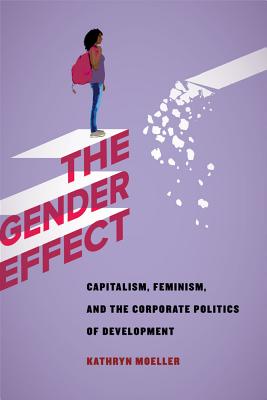
The Gender Effect: Capitalism, Feminism, and the Corporate Politics of Development
How and why are U. S. transnational corporations investing in the lives, educations, and futures of poor, racialized girls and women in the Global South. Is it a solution to ending poverty. Or is it a pursuit of economic growth and corporate profit. Drawing on more than a decade of research in the United States and Brazil, this book focuses on how the philanthropic, social responsibility, and business practices of various corporations use a logic of development that positions girls and women as instruments of poverty alleviation and new frontiers for capitalist accumulation.
| Quantity | Price | Discount |
|---|---|---|
| List Price | $29.95 |
Non-returnable discount pricing
$29.95
Book Information
| Publisher: | University of California Press |
|---|---|
| Publish Date: | 02/16/2018 |
| Pages: | 320 |
| ISBN-13: | 9780520286399 |
| ISBN-10: | 0520286391 |
| Language: | English |
Full Description
How and why are U.S. transnational corporations investing in the lives, educations, and futures of poor, racialized girls and women in the Global South? Is it a solution to ending poverty? Or is it a pursuit of economic growth and corporate profit? Drawing on more than a decade of research in the United States and Brazil, this book focuses on how the philanthropic, social responsibility, and business practices of various corporations use a logic of development that positions girls and women as instruments of poverty alleviation and new frontiers for capitalist accumulation. Using the Girl Effect, the philanthropic brand of Nike, Inc., as a central case study, the book examines how these corporations seek to address the problems of gendered poverty and inequality, yet do so using an instrumental logic that shifts the burden of development onto girls and women without transforming the structural conditions that produce poverty. These practices, in turn, enable corporations to expand their legitimacy, authority, and reach while sidestepping contradictions in their business practices that often exacerbate conditions of vulnerability for girls and women. With a keen eye towards justice, author Kathryn Moeller concludes that these corporatized development practices de-politicize girls' and women's demands for fair labor practices and a just global economy.

